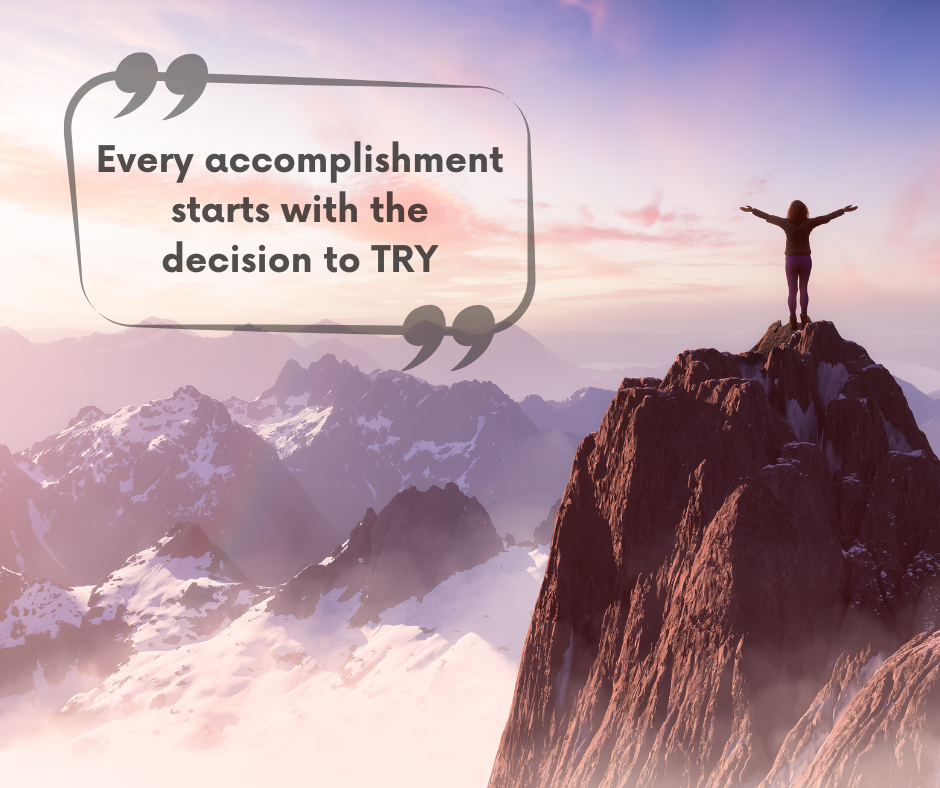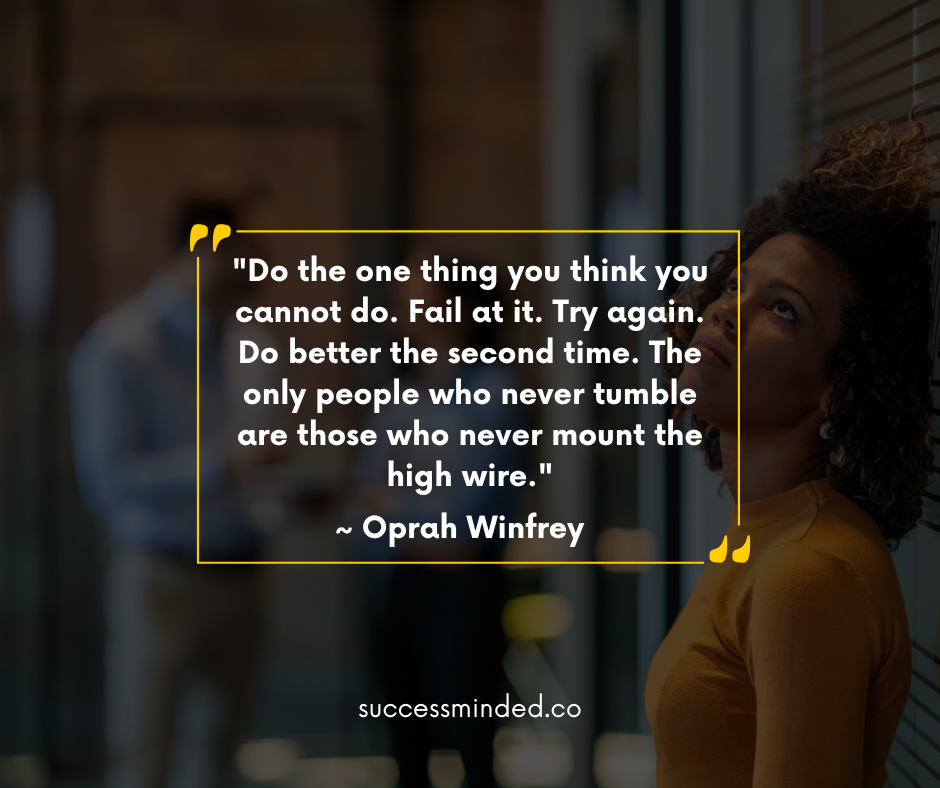We’ve all been there – struck with a flash of inspiration for a new business, hobby, skill, or goal we want to achieve. But then that initial excitement fades into uncertainty about how to even begin. Suddenly, the gap between where we are and where we want to be seems impossible to bridge. So our big idea gets filed away as “maybe someday.”
But what if the path to accomplishment was simpler than we think? What if it starts with one basic yet powerful decision – to just try.

The Meaning of “Every Accomplishment Starts with the Decision to Try”
This quote by influential figures like John F. Kennedy and Gail Devers emphasizes that the first step towards any achievement begins when we decide to make an initial effort – to simply try without overthinking it. It highlights how all progress in life flows from driving past hesitation and excuses and getting started.
While deciding to try something sounds straightforward, it’s often the part we overlook or avoid. But it’s a required spark that ignites momentum.
The First Step is Often the Hardest
When we have a goal in mind but haven’t begun pursuing it yet, taking the first step can be daunting. Our minds start listing all the preparation still required or spun up overanalyzing all the “what ifs.” Perfectionism kicks in, insisting everything must be just right before getting started.
Fear arises, too – what if I fail? What if I can’t do it? This leads to hesitancy and procrastination. Suddenly, getting started feels like the hardest part.
But the truth is, there will never be a “perfect” time. The fear, doubts, and emotional resistance will always exist when doing something new. You must make the decision to try anyway. Progress in life starts outside your comfort zone.
Trying Opens Doors
Taking even small steps to try something new opens up possibilities that seemed out of reach before. You discover strengths and skills you didn’t know you possessed. Each attempt builds experience and confidence.
Sure, you may stumble at times. But as Oprah Winfrey said, “Do the one thing you think you cannot do. Fail at it. Try again. Do better the second time. The only people who never tumble are those who never mount the high wire.”

See trying not as a pass/fail test but a doorway to growth. With this mindset, there are no unsuccessful attempts, only lessons to apply.
The Power of Small Steps
When facing a big goal, trying doesn’t have to involve monumental first steps that intimidate you. Accomplishment occurs through many small actions over time. Attempting something modest today gets momentum going.
Maybe you simply research your idea more deeply. Or set a timeline. Or tell a friend about it to make yourself accountable. Little steps count – they build up like compound interest. Before you know it, you’re gaining traction. As Lao Tzu said, even a thousand-mile journey begins with one step.
Having the Right Mindset
Adopting certain mindsets can help trying feel less daunting:
- View abilities as learnable, not fixed – believe you can get better with effort.
- Set progress-based goals, not perfectionist ones.
- Reframe setbacks as lessons, not failures.
- Focus on where you’re going, not where you are.
- Effort and perseverance create growth, not innate talent.
Apply these principles as you take those challenging first steps.
The path to accomplishing your biggest goals starts with the courage to try. All pioneers and innovators once had to face the unknown and simply take that first leap. Trust that doing so unlocks potential you don’t even realize you have. Allow trying to open up new worlds of possibility.
Conclusion
When we feel stuck or immobilized by the vast gap between our present reality and the accomplishments we aspire to, it’s important to remember that progress starts with one basic yet courageous step – deciding to try. All pioneers had to feel the fear and self-doubt, then transcend it by daring to attempt that very first stroke, chord, prototype, or experiment. Effort and intention unfailingly set growth in motion. Trust that by simply trying, you light the spark that ignites real change.




Pingback: The Things That We Love Tell Us What We Are: St. Thomas Aquinas – Success Minded